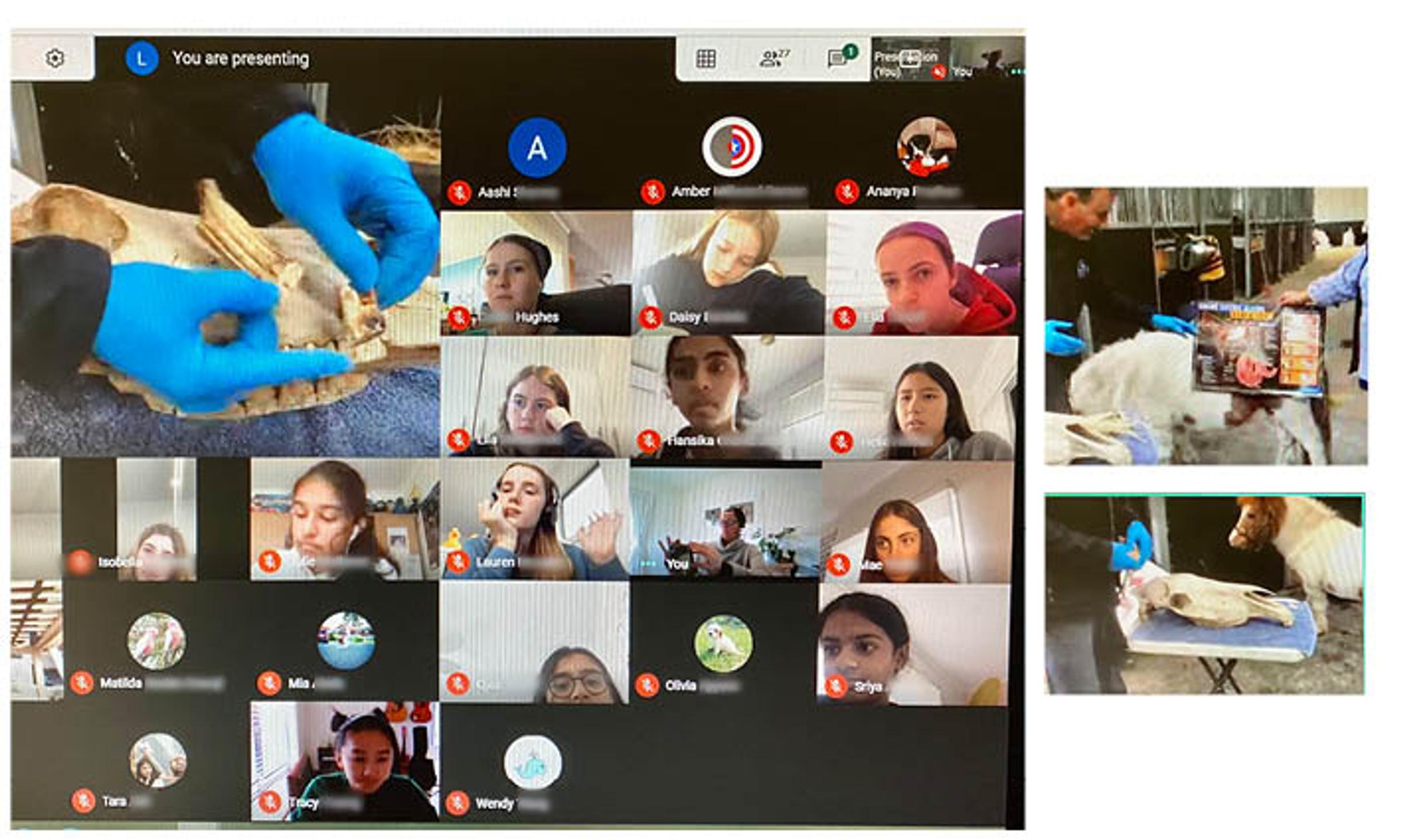Virtual Science

Horsing around
Louise Rieniet's Year 8B science class had a guest speaker discussing the horse digestion system. A practical 'hands-on' experience.
Towards the end of week three of online learning, 8B had an opportunity to have guest speakers explain the digestive system with a REAL horse! Dr Paul Owens, who is a specialist veterinary dentist, took 8B through the first half of a horse's digestive system, with the second part explained by owner of Keysborough Equine, Sarah Coleman. We listened on with Paul and Sarah, and learnt fun facts like horses do not have the ability/gut pressure to regurgitate their food, and that horses are more similar to rabbits than cows. We thank Paul and Sarah for this opportunity and hope it can become an annual event when Year 8 study the digestive system in future.
Alyssa Coleman
Some comments from the students.
That was amazing, thank you so much.
I liked how we got to see a real horse to actually demonstrate how the digestive system works.
That was really good and informative, thank you!!
Thank you Alyssa! That was so fun, and educational!
It was so cool to see the skull!
Thank you for showing us about the horses digestive system
Thank you, such a great experience!
Guest speaker
Jessica Jones is a second year medical student who was diagnosed with type 1 diabetes a year ago. Jess came online to share her knowledge and experience of diabetes with us.
Type 1 diabetes is an autoimmune condition where your immune system, the body's system for fighting infection, attacks and destroys the insulin-producing beta cells of the pancreas. Last year, Jess experienced fatigue and frequent urination as well as increased thirst, which led to her diagnosis.
Untreated Diabetes can cause a number of different health problems. Large amounts of glucose can damage blood vessels, nerves and organs. Having a consistently raised glucose level that doesn't cause any symptoms may have damaging effects in the long term, such as increased risk of heart disease and kidney disease.
Jess also discussed with us how her day-to-day life has been impacted by type 1 diabetes. She must monitor her blood glucose levels with a CMG (Continuous Glucose Monitoring) in her arm, as opposed to pricking her finger and testing the blood on a glucose monitor. In addition to this, she talked to us about her insulin pump, a small, computerized device that mimics the way the pancreas works by delivering small doses of short acting insulin continuously.
She explained that the downside to having the pump is that it is constantly attached but must be taken off when in the water. Jess however still noted the insulin pump was better for her than the insulin injections simply because of the convenience.
It is important for Jess to check her blood sugar levels at least four times a day, before meals and before bed, because if her blood sugar goes too low during the night, her brain isn’t being provided with enough glucose and she can go into a coma.
We were grateful to Jessica for sharing her knowledge and background with us. The presentation was extremely beneficial and a welcome addition to our remote learning experience.
Liv Radford, Unit 1 Biology Student

